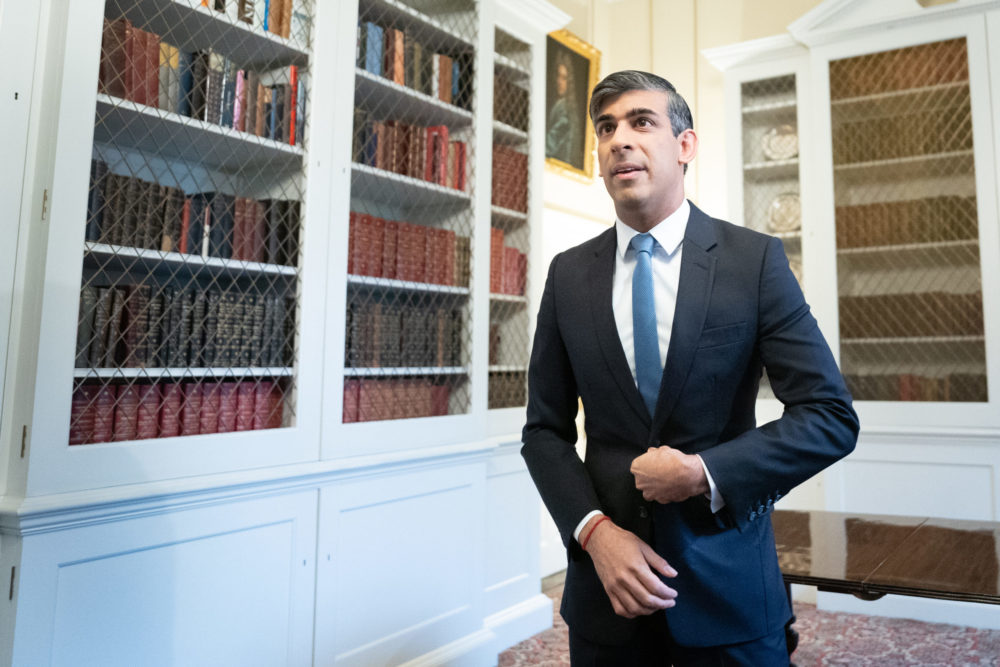UK inflation cools to lowest level in nearly three years

UK inflation fell to the lowest level in nearly three years in April as energy prices continued to cool, according to official figures.
Consumer Prices Index (CPI) inflation slowed to 2.3% in April, down from 3.2% in March, according to the Office for National Statistics (ONS).
It marks the lowest level since July 2021 when inflation was recorded at 2% – the Bank of England’s target level.
This means that prices are still rising across the country, but at a much slower rate than in recent years when households and businesses were being squeezed during the peak of the cost-of-living crisis.
‘Brighter days’
Rishi Sunak declared inflation was “back to normal” in response to the latest figures, and that “brighter days are ahead”.
However, April’s CPI figure came in above the 2.1% that economists had been predicting for the month, indicating a slower-than-expected return to the Bank’s 2% target level.
Lower gas and electricity prices helped bring down the overall inflation figure in April, with prices plunging by more than a quarter in the year to April, the largest fall on record.
Food and drink price rises also slowed for the 13th month in a row to 2.9% in April, from 4% in March, and the lowest level since November 2021.
However, services inflation, a critical indicator for Bank of England policymakers, dipped slightly from 6% in March to 5.9% in April, coming in ahead of the 5.4% rate that some economists had been predicting.
‘Price rise’
This was driven by stubborn price rises across restaurants and pubs and more volatile aspects of the sector such as hotels and live music.
Average petrol prices also rose by 3.3p per litre between March and April, the ONS said.
The Prime Minister said: “Today marks a major moment for the economy, with inflation back to normal.
“This is proof that the plan is working and that the difficult decisions we have taken are paying off.
“Brighter days are ahead, but only if we stick to the plan to improve economic security and opportunity for everyone.”
Grant Fitzner, the ONS’s chief economist, said: “There was another large fall in annual inflation led by lower electricity and gas prices, due to the reduction in the Ofgem energy price cap.
“Tobacco prices also helped pull down the rate, with no duty changes announced in the budget.
“Meanwhile, food price inflation saw further falls over the year. These falls were partially offset by a small uptick in petrol prices.”
Services inflation
Experts reacting to the latest figures pointed out that the higher-than-expected services inflation figure could have an impact on when the Bank of England decides to cut UK interest rates.
James Smith, developed markets economist for ING, said services inflation was “the single most important indicator for the Bank of England”.
April’s figure therefore reduces the chances of interest rates being cut when the Bank’s policymakers next meet in June, he said.
Suren Thiru, economics director for the Institute of Chartered Accountants in England and Wales (ICAEW), said: “This underwhelming drop in inflation suggests that the UK is rather stumbling back towards the Bank of England’s 2% target, as lower energy bills had a smaller than expected impact on April’s headline rate.
“Lingering concerns over underlying inflationary pressures mean a June rate cut is unlikely.
“However, these figures may convince more rate setters to vote to ease policy, providing a signal that a summer rate cut is still possible.”
Support our Nation today
For the price of a cup of coffee a month you can help us create an independent, not-for-profit, national news service for the people of Wales, by the people of Wales.







